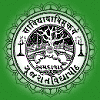-
About us
- About KVK
- About Host institution
- Faculty
- District Profile
- Infrastructure
- Demonstration Units
-
Gallery
- Photo Gallery
- Video Gallery
-
Activities
- Training
- Extension Activities
- FLD/OFT
-
Report
- Annual Action Plan
- Annual Progress Report
- Success Story
-
Publication
- News Latter
- Literature
- NICRA project
- Events
About KVK(krishi vigyan kendra)
Krishi vigyan kendra
Krishi Vigyan Kendra (KVK), Valsad is established during September 1992, under the aegis of ICAR (Indian Council of Agriculture), New Delhi. The host institute Gujarat Vidyapith, Ahmedabad a deemed university established by Father of our Nation, MahatmaGandhiji in 1920. is working for rural developement besides its educational activites. Gujarar vidyapith runs three kvks in gujarat, KVK located in ambheti is one of them. The main objective of KVK is to transfer latest technologies in agriculture and allied fields to the farmers.
Mandates of KVK
- Conducting the “On farm testing” for identifying technologies in terms of location specific
sustainable land use systems.
- Organize training to update the extension personnel with emerging advances in agricultural
research on regular basis :
- Organize short and long vocational training courses in
agriculture and allied vocations for the farmers and rural youth
with emphasis on “Learning by doing for higher production
on farmers and generating self employments :
- Organize the front line demonstration on various crops
for generating production data and feedback information.



